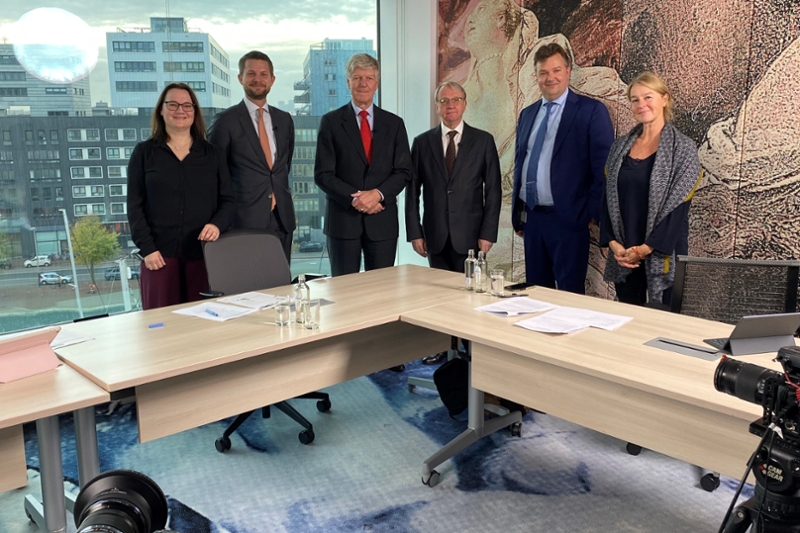Amsterdam |
Key take-aways from the NCC webinar
The key take-away's from this webinar:

- In light of the changing dispute resolution landscape (the emergence of several English-speaking international commercial courts) it may be wise to reconsider the standard jurisdiction clauses that lawyers use for international agreements.
- The main factors to consider when choosing court litigation, arbitration or mediation are 1) confidentiality of the proceedings 2) expertise and neutrality of the judges/arbitrators 3) expected length of the proceedings and 4) costs. The differences in speed and costs between the various arbitration institutions and state courts may be considerable. See this flyer published by the Netherlands Commercial Court (pdf, 284 KB).
- Where parties agree on a multi-tiered dispute resolution clause (a combination of mediation and arbitration or court litigation) they should check whether the first tier of the clause (for example: mediation) is binding. This varies from country to country (the Dutch Supreme Court- You are leaving Rechtspraak.nl recently ruled on the circumstances where a mediation clause is binding). The IBA Litigation Committee published a handbook on the enforcement of multi-tiered dispute resolution clauses - You are leaving Rechtspraak.nl in various jurisdictions all around the world.
- If the parties opt for court litigation, a neutral forum (not from the jurisdiction of either party) may be a solution where parties disagree on the proper forum. Differences in the courts' procedural laws (full or limited disclosure/discovery- You are leaving Rechtspraak.nl) are relevant in this regard. But in the end, the key consideration for choosing a specific forum is the place where the assets of a party are located, just in case a judgment against that party needs to be enforced. In 2018, this thesis- You are leaving Rechtspraak.nl was published on the reasons for lawyers to choose a specific court (see Charts 1 to 9, and Chapter 5.3).
- Where the parties have decided on dispute resolution by a specific state court, they need to choose whether that court will have exclusive jurisdiction (so excluding all other courts) or not. The downside of making a choice for a non-exclusive or asymmetrical forum clause is that enforcement cannot be sought under the 2005 Hague Choice of Court Convention.
- The issue of applicable law is a separate issue, but it may be relevant for the choice of court. Usually, a choice-of-court aligns with a choice-of-law: judges do not have the same level of knowledge on foreign law as on their domestic law. However, it does happen (pdf, 439 KB) that judges apply foreign law.
- In the first 5 years of its existence, the Netherlands Commercial Court dealt with a fair number of international commercial disputes from jurisdictions around the globe, from Hong Kong, via Turkey, Switzerland, the UK to the US. There was a great variety of issues: claims relating to M&A, financial agreements, clinical trial services, and manufacturing and distribution agreements. See the NCC Judgments List.
- The NCC expects a steady rise in cases as more and more international commercial parties include the NCC jurisdiction clause in their contracts. Also a rise in arbitration-related cases is expected, as the Netherlands Arbitration Institute- You are leaving Rechtspraak.nl chose Amsterdam as the default place of arbitration.
Thanks to
We appreciate all the time and effort the speakers put in to provide the audience with a comprehensive overview of the factors relevant for choosing the appropriate dispute resolution forum. We thank the attendees for joining our webinar and for the questions they put to the speakers during the webinar.

